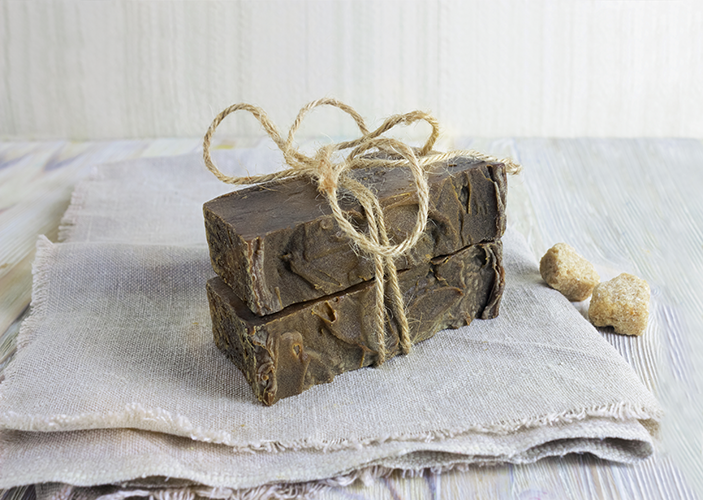I am reading a series of books by S. M. Stirling about what happens when civilization as we know it loses electricity, internal combustion, and gunpowder, as the result of an event the author calls “The Change.” In the years after The Change, the inhabitants of the Willamette Valley in Oregon have learned to cope, to raise crops, build water wheels, tan hides, prepare and store foods, weave and dye… but the author misses the boat on soap.
In one scene, a character is washing up after delivering a lamb with ” a chunk of strong-smelling lye soap” (at which his daughter “wrinkled her nose”) and he had to rinse well to get the “lye soap” out of his eyes and the “harsh soap” out of his mouth.
You’d think that the author would have done enough research to know that the science of making soap is something that is not affected by electricity, internal combustion or gunpowder. In fact, in the artistic and creative society he describes, the soap produced could (and most likely would) be not only good soap, it would be much better than “store-bought” soap from before the Change.
Authors, if you are describing handmade soap, here are a few facts to take into consideration:
- ALL true soap is “lye soap.” Soap is created with a chemical reaction that REQUIRES lye in order to make it work.
- Handmade soap retains the glycerin (which is a byproduct of the soapmaking process), and thus is more moisturising than typical commercial soaps, which have fillers added and the glycerin removed.
- Soap can be made with any animal or vegetable fats or oils; soap made from rendered tallow or lard is often the hardest and most gentle soap.
- “Harsh” soap is made by having too much lye, a result of bad soapmaking. The science of calculating the correct amount of lye has been around for centuries.
- When made well, soap doesn’t go bad or “smell rancid.” In fact, even unscented soap has a pleasant, natural scent. And, of course, it can be easily scented with a wide variety of plant oils, herbs or spices.
I certainly wish that authors who choose to include soap in their works of fiction (or fact) would take the time to get the details right.


Leave a Reply
You must be logged in to post a comment. Login/Register